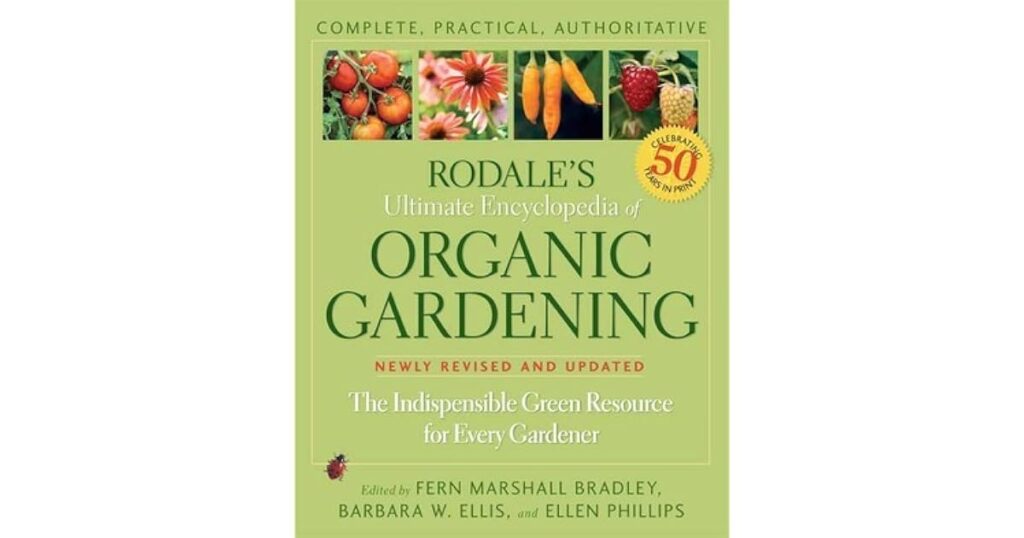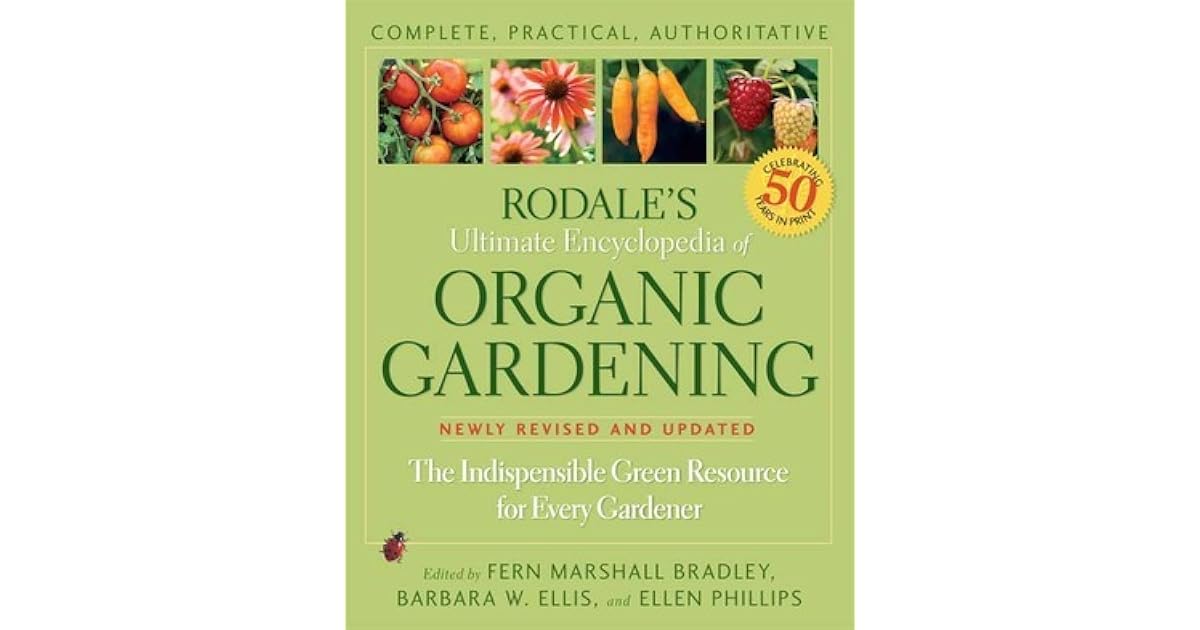
Unlock the Secrets of Rodale Organic Gardening: A Comprehensive Guide
For generations, gardeners seeking a healthier, more sustainable way to cultivate their land have turned to the principles of Rodale Organic Gardening. More than just a set of techniques, it’s a philosophy rooted in respecting the earth, fostering biodiversity, and nourishing plants naturally. This comprehensive guide delves deep into the core tenets of Rodale’s approach, providing you with the knowledge and practical advice to transform your garden into a thriving, organic ecosystem. Whether you’re a seasoned gardener or just starting out, understanding and applying these principles will lead to healthier plants, richer soil, and a more rewarding gardening experience.
The Essence of Rodale Organic Gardening: A Holistic Approach
Rodale Organic Gardening, pioneered by J.I. Rodale and the Rodale Institute, extends far beyond simply avoiding synthetic pesticides and fertilizers. It’s a holistic system that emphasizes soil health as the foundation for thriving plants. This approach recognizes the interconnectedness of all living things within the garden ecosystem, from the smallest microbes to the largest trees.
At its core, Rodale’s philosophy revolves around several key principles:
- Soil Health: Building and maintaining healthy soil through composting, cover cropping, and minimizing tillage.
- Natural Pest Control: Utilizing beneficial insects, companion planting, and other natural methods to manage pests and diseases.
- Biodiversity: Encouraging a diverse range of plants and animals to create a resilient and balanced ecosystem.
- Water Conservation: Employing techniques like mulching and efficient irrigation to conserve water resources.
- Avoiding Synthetic Inputs: Refraining from the use of synthetic fertilizers, pesticides, herbicides, and genetically modified organisms (GMOs).
The evolution of organic gardening, heavily influenced by Rodale’s work, reflects a growing awareness of the environmental and health impacts of conventional agriculture. What started as a niche movement has become a mainstream approach, with consumers increasingly demanding organically grown produce and gardeners seeking more sustainable practices.
The Legacy of J.I. Rodale and the Rodale Institute
J.I. Rodale, a visionary entrepreneur and health advocate, founded the Rodale Institute in 1947. His groundbreaking research and advocacy for organic farming methods challenged conventional agricultural practices and laid the foundation for the modern organic movement. The Rodale Institute continues to be a leading research and education center, conducting long-term studies on organic farming systems and promoting sustainable agricultural practices worldwide.
Composting: The Cornerstone of Rodale’s Soil Health Philosophy
Composting is arguably the single most important practice in Rodale Organic Gardening. It’s the process of decomposing organic matter into a nutrient-rich soil amendment that improves soil structure, fertility, and water retention.
How Composting Works: Microorganisms, such as bacteria and fungi, break down organic materials like leaves, grass clippings, food scraps, and manure. This process transforms these materials into humus, a stable form of organic matter that releases nutrients slowly over time. A proper balance of “greens” (nitrogen-rich materials) and “browns” (carbon-rich materials) is essential for efficient composting.
Benefits of Compost:
- Enriches soil with essential nutrients
- Improves soil structure, making it easier for roots to grow
- Increases water retention, reducing the need for irrigation
- Suppresses plant diseases and pests
- Reduces reliance on synthetic fertilizers
- Diverts organic waste from landfills
Creating Your Own Compost Pile
Setting up a compost pile is a simple and rewarding process. You can use a compost bin, a pile on the ground, or even a tumbler. The key is to maintain the right balance of moisture, air, and organic materials. Aim for a 50/50 mix of “greens” and “browns,” and turn the pile regularly to provide aeration. In our experience, a well-managed compost pile can produce usable compost in as little as a few months.
Seed Starting: Nurturing Life from the Beginning with Rodale Techniques
Starting seeds indoors allows you to get a head start on the growing season and cultivate plants that may not thrive if directly sown into the garden. Rodale Organic Gardening emphasizes using organic seed starting mixes and providing optimal conditions for germination and growth.
Choosing Organic Seed Starting Mix: Avoid mixes that contain synthetic fertilizers or wetting agents. Look for mixes made from ingredients like peat moss, coconut coir, vermiculite, and perlite, amended with compost or other organic nutrients.
Providing Optimal Conditions: Seeds need warmth, moisture, and light to germinate. Use a heat mat to maintain a soil temperature of around 70-75°F. Keep the soil consistently moist but not waterlogged. Once the seedlings emerge, provide them with adequate light, either from a sunny window or grow lights. Based on expert consensus, seedlings require 14-16 hours of light per day.
Transplanting Seedlings: Once the seedlings have developed several sets of true leaves, they’re ready to be transplanted into the garden. Harden them off gradually by exposing them to outdoor conditions for increasing periods of time each day before transplanting.
Integrated Pest Management (IPM): A Natural Approach to Garden Health
Instead of relying on synthetic pesticides, Rodale Organic Gardening promotes Integrated Pest Management (IPM), a holistic approach that focuses on preventing pest problems before they occur and using natural methods to control pests when necessary.
Key Components of IPM:
- Prevention: Creating a healthy garden environment that is less susceptible to pests. This includes choosing disease-resistant varieties, practicing crop rotation, and maintaining healthy soil.
- Monitoring: Regularly inspecting plants for signs of pests or diseases.
- Identification: Accurately identifying pests and diseases to determine the most effective control methods.
- Natural Controls: Utilizing beneficial insects, companion planting, and other natural methods to control pests.
- Least-Toxic Options: If necessary, using least-toxic pesticides, such as insecticidal soap or horticultural oil, as a last resort.
Beneficial Insects: Your Allies in the Garden
Attracting beneficial insects, such as ladybugs, lacewings, and parasitic wasps, is a crucial part of IPM. These insects prey on common garden pests, helping to keep their populations in check. You can attract beneficial insects by planting flowering plants that provide them with nectar and pollen.
The Rodale Institute’s Organic No-Till Revolution
The Rodale Institute has been at the forefront of promoting organic no-till farming practices, which minimize soil disturbance and enhance soil health. Conventional tillage can damage soil structure, reduce organic matter, and release carbon dioxide into the atmosphere. No-till farming, on the other hand, helps to build healthy soil, sequester carbon, and reduce erosion.
Benefits of Organic No-Till:
- Improved soil health
- Increased carbon sequestration
- Reduced erosion
- Water conservation
- Reduced fuel consumption
Cover Cropping: A Key Component of No-Till Systems
Cover crops are plants that are grown to protect and improve the soil. They can be used to suppress weeds, add organic matter, and fix nitrogen in the soil. Common cover crops include legumes, grasses, and brassicas. According to a 2024 industry report, the use of cover crops is rapidly increasing as farmers and gardeners recognize their numerous benefits.
Rodale’s Legacy: Cultivating a Sustainable Future
Rodale Organic Gardening provides a pathway to create a vibrant, healthy, and sustainable garden. Whether you’re interested in growing your own food, creating a beautiful landscape, or simply connecting with nature, the principles of Rodale’s approach can guide you towards a more rewarding and environmentally responsible gardening experience. The key lies in understanding the interconnectedness of all living things within the garden ecosystem and working in harmony with nature to create a thriving environment.
Ready to put these principles into practice? Share your experiences with organic gardening in the comments below. You can also explore our advanced guide to companion planting for more in-depth information.

